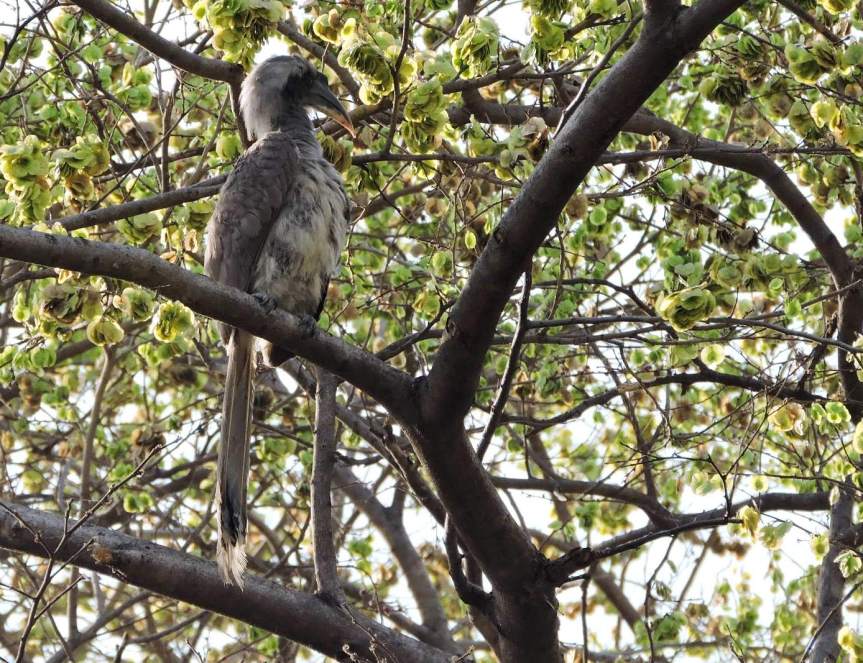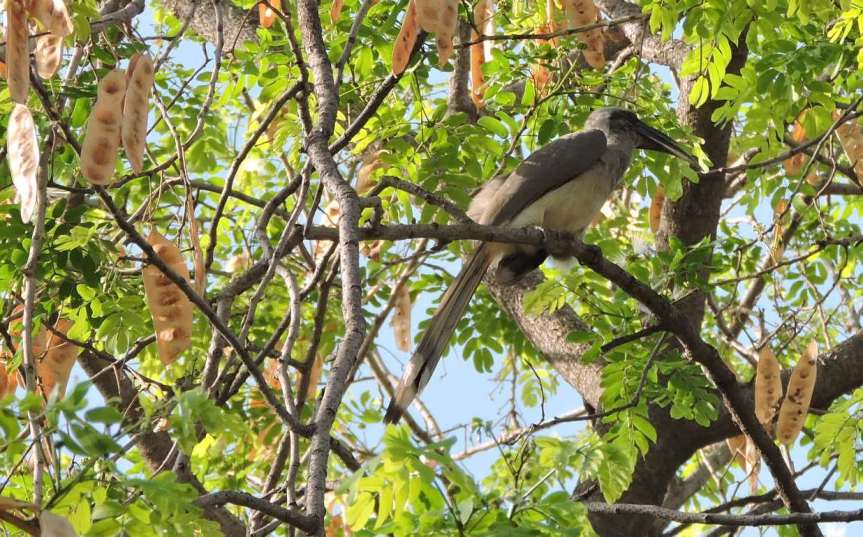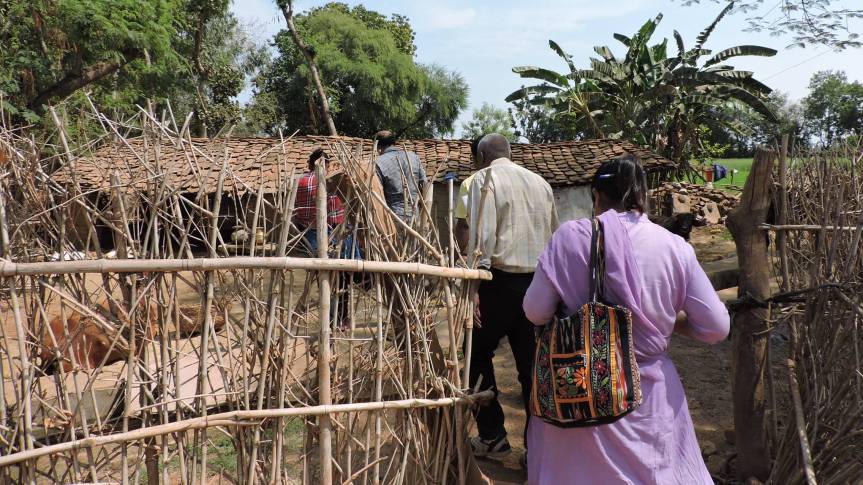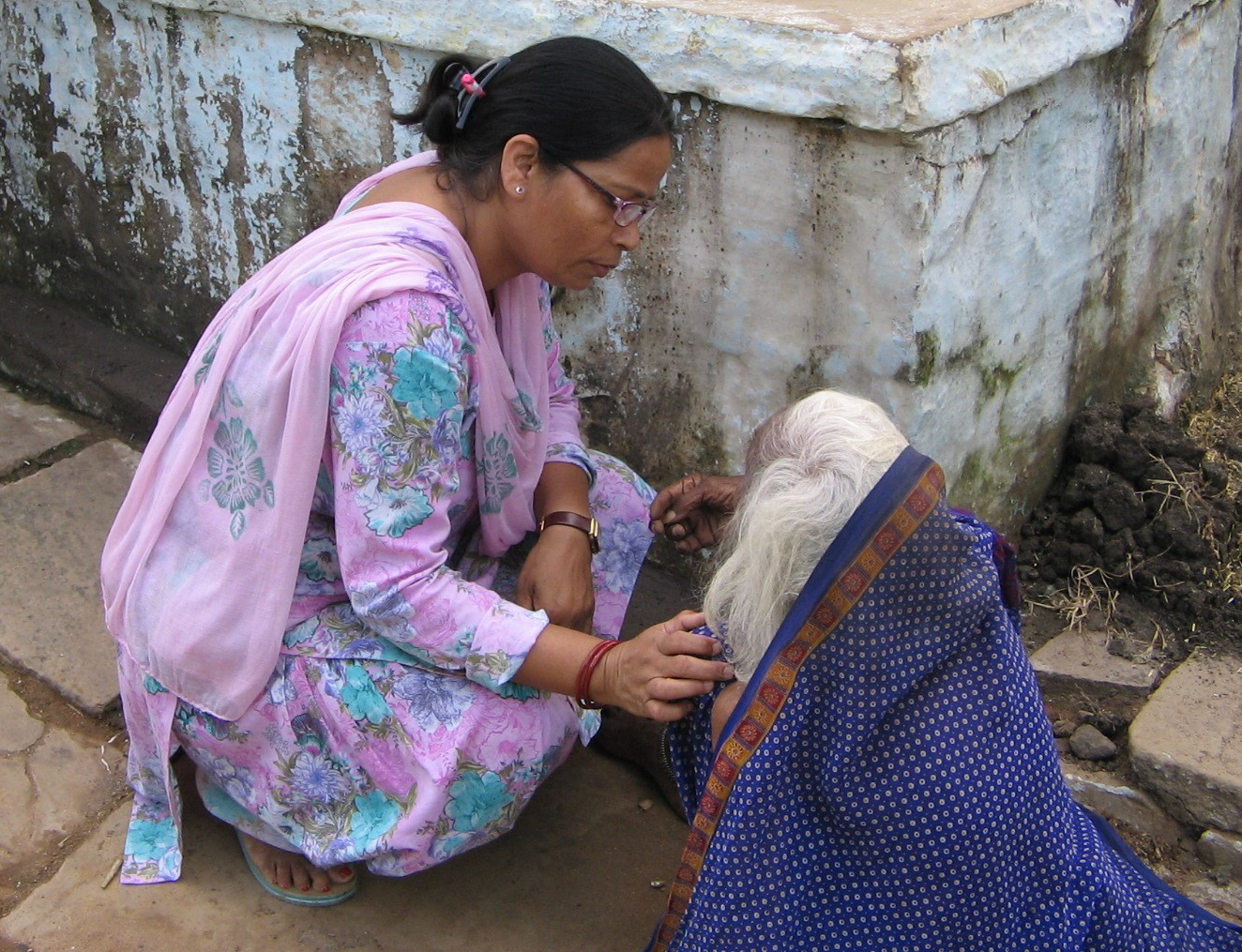
Roshan is a 40 year man who lives in Lalitpur (All names have been changed to protect the privacy of the individuals). He made his living by working as a labourer. He and his wife Rajni live together with their parents and do not have any children. For many years, Roshan would go to work and return home in the evening without incident. While at work he smoked and chewed tobacco. This practice went on for a long time. But in October of 2016, he felt a stinging pain in his throat. His family was frightened and rushed him to the hospital. After a long treatment, he did not get any relief. He visited many practitioners and they were not able to diagnose his problem. One of the doctors he visited suggested that he go to a specialized hospital in Bhopal because he was not able to swallow food. At this hospital they inserted an NG tube for feeding. In January of this year, he went through a surgery and had a tracheostomy done.
After the surgery, they suggested that Roshan receive chemo therapy. However the cost for this treatment was Rs. 50,000/- and they do not have the money. Because of this, they came back to their home and started treatment at the Government hospital. The Government hospital referred Roshan to H.B.M. and Roshan came to us with his whole family.
Our palliative care program is designed to meet the needs of those who are suffering with terminal illnesses. We offer home care in a 50km radius around Lalitpur. It is our joy to serve and assist those who are suffering in this way with dignity and respect.
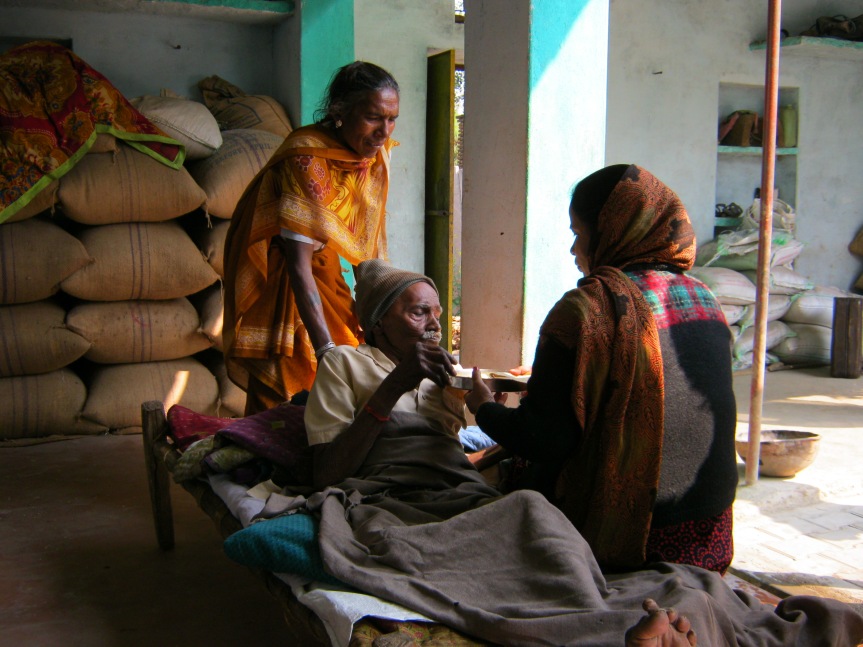
After an initial evaluation, we decided to enrol him in our palliative care program. Now we are visiting him frequently in his home and during a visit, we came to know that he and his family are going through a very difficult time. They do not trust each other and because of this, Roshan and his wife are going through an emotional crisis. His parents do not take kindly to his wife because she is unable to bear children. Roshan is worries about his wife’s future after he passes away.
A few weeks ago, his neck started swelling and it was difficult for him to bear the pain. During several visits, we were able to spend some quality time with his wife as well. She was deeply moved during these visits and wept freely. She said that she will have to sell her house after her husband’s death because of her in-laws. She doesn’t know what she will do. We asked her that if she is interested in becoming a shopkeeper and offered to help her to open a small shop so she could support herself after her husband’s death. She was very grateful for this and said she would thoughtfully consider it.
Each week we get the privilege of going to Roshan’s house and to do our best to provide physical and emotional support for him and his family as he nears the ends of his earthly journey. His family happily prays with us at the conclusion of every visit. What a blessing to be able to serve Roshan and his family in this way.

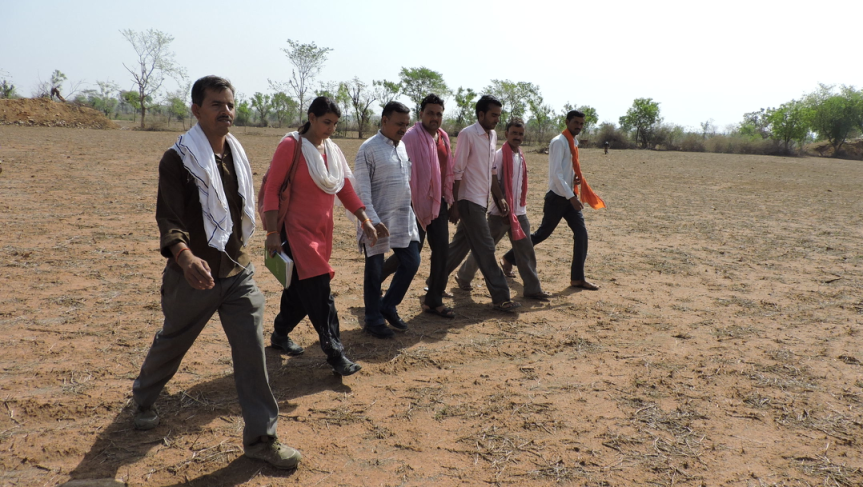
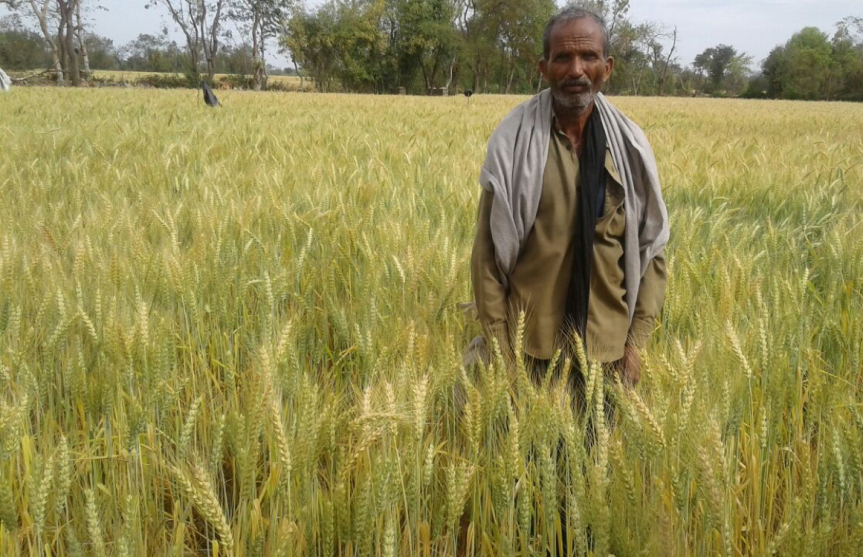
 Two ladies, one of them pregnant, came to the HBM hospital one afternoon and were met by Dr. Tony Bishwas.
Two ladies, one of them pregnant, came to the HBM hospital one afternoon and were met by Dr. Tony Bishwas.